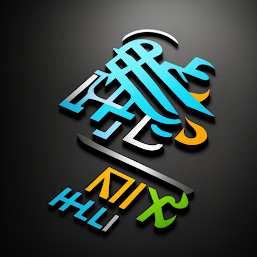Navigating the Ethical Landscape: Unraveling Business Ethics and Culture in Pakistan
In the vibrant tapestry of global business, understanding and respecting the cultural nuances of each region is paramount. Pakistan, with its rich history and diverse population, presents a unique landscape where business ethics are deeply intertwined with cultural values. In this blog post, we embark on a journey to explore the intricate relationship between business ethics and culture in Pakistan, shedding light on the key aspects that shape the ethical framework in this South Asian nation.
Unveiling the Cultural Mosaic
Pakistan, a country of over 220 million people, boasts a tapestry of cultures, languages, and traditions. From the bustling streets of Karachi to the serene valleys of Swat, diversity is the heartbeat of this nation. As we delve into the realm of business ethics, it is imperative to first understand the cultural fabric that lays the foundation for ethical practices.
1. Familial Bonds and Business
Family holds a paramount position in Pakistani culture. The concept of 'baradari' or extended family is deeply ingrained, often influencing business decisions. Trust is commonly established through familial connections, with many businesses being family-owned or relying on close-knit networks.
2. Respect for Hierarchy
The cultural emphasis on respect for elders and hierarchical structures plays a significant role in business dynamics.
3. Hospitality as a Virtue
The warmth and hospitality of Pakistanis are legendary. In the business realm, this translates into building relationships through shared meals and personal connections. Understanding the significance of these gestures is key to establishing trust and ethical partnerships.
Ethics in Business: Striking a Delicate Balance
Now that we have a glimpse into the cultural underpinnings, let's explore how these values intersect with business ethics in Pakistan.
1. Corruption Challenges
While Pakistan has made strides in combating corruption, it remains a challenge in the business sphere. Navigating this landscape requires a nuanced approach, with businesses often adopting transparent practices to counteract corruption.
2. Compliance with Islamic Principles
Islam plays a pivotal role in shaping ethical standards in Pakistan. Many businesses align their practices with Islamic principles, including interest-free financing (Riba) and adherence to halal standards. Understanding the intersection of religion and business is crucial for ethical decision-making.
Keyword: Islamic business ethics in Pakistan
3. Gender Dynamics in the Workplace
Navigating gender dynamics is another aspect that requires attention. While progress has been made, gender disparities persist in certain sectors. Ensuring gender equality is not only an ethical imperative but also contributes to sustainable business practices.
Research Insights: What Studies Reveal
To enrich our understanding, let's delve into five research studies that shed light on the intricate interplay between business ethics and culture in Pakistan:
- "Ethical Decision Making in Pakistani Organizations: A Cultural Perspective" - Link to Research Paper
- "Impact of Family Ownership on Business Ethics: Evidence from Pakistani Firms" - Link to Research Paper
- "Corporate Social Responsibility in Pakistan: A Cultural Analysis" - Link to Research Paper
- "Women in the Workplace: A Study of Gender Dynamics in Pakistani Organizations" - Link to Research Paper
- "Corruption Perception Index in Pakistan: Trends and Implications for Business Ethics" - Link to Research Paper
Navigating the Future: Ethical Business Practices
As we navigate the ever-evolving landscape of business ethics in Pakistan, it's essential to embrace a forward-looking approach. Here are some key takeaways for businesses seeking to thrive ethically in this dynamic environment:
1. Embrace Diversity
Understanding and appreciating the diverse cultures within Pakistan is not just a necessity but a strategic advantage. Embracing diversity fosters creativity and innovation, contributing to sustainable business growth.
2. Transparency as a Pillar
Transparency is the bedrock of ethical business practices. From financial transactions to decision-making processes, businesses must prioritize openness to build trust within the community and among stakeholders.
3. Social Responsibility Matters
Engaging in meaningful corporate social responsibility (CSR) initiatives is not just a moral obligation but a business imperative. Aligning with community needs and social values strengthens the brand and contributes to long-term success.
Conclusion: A Tapestry of Ethics and Culture
In the kaleidoscope of Pakistan's culture and business landscape, the threads of ethics are intricately woven. Navigating this terrain requires a deep understanding of familial bonds, hierarchical structures, and the cultural values that underpin ethical practices. As businesses strive for success in Pakistan, embracing diversity, fostering transparency, and committing to social responsibility will not only ensure ethical practices but also pave the way for a flourishing future.
In the ever-evolving global marketplace, the journey through Pakistan's business ethics and culture is a testament to the richness of diversity and the importance of ethical leadership. As businesses embark on this journey, weaving together the threads of culture and ethics will undoubtedly lead to success in this dynamic and vibrant nation.





0 Comments